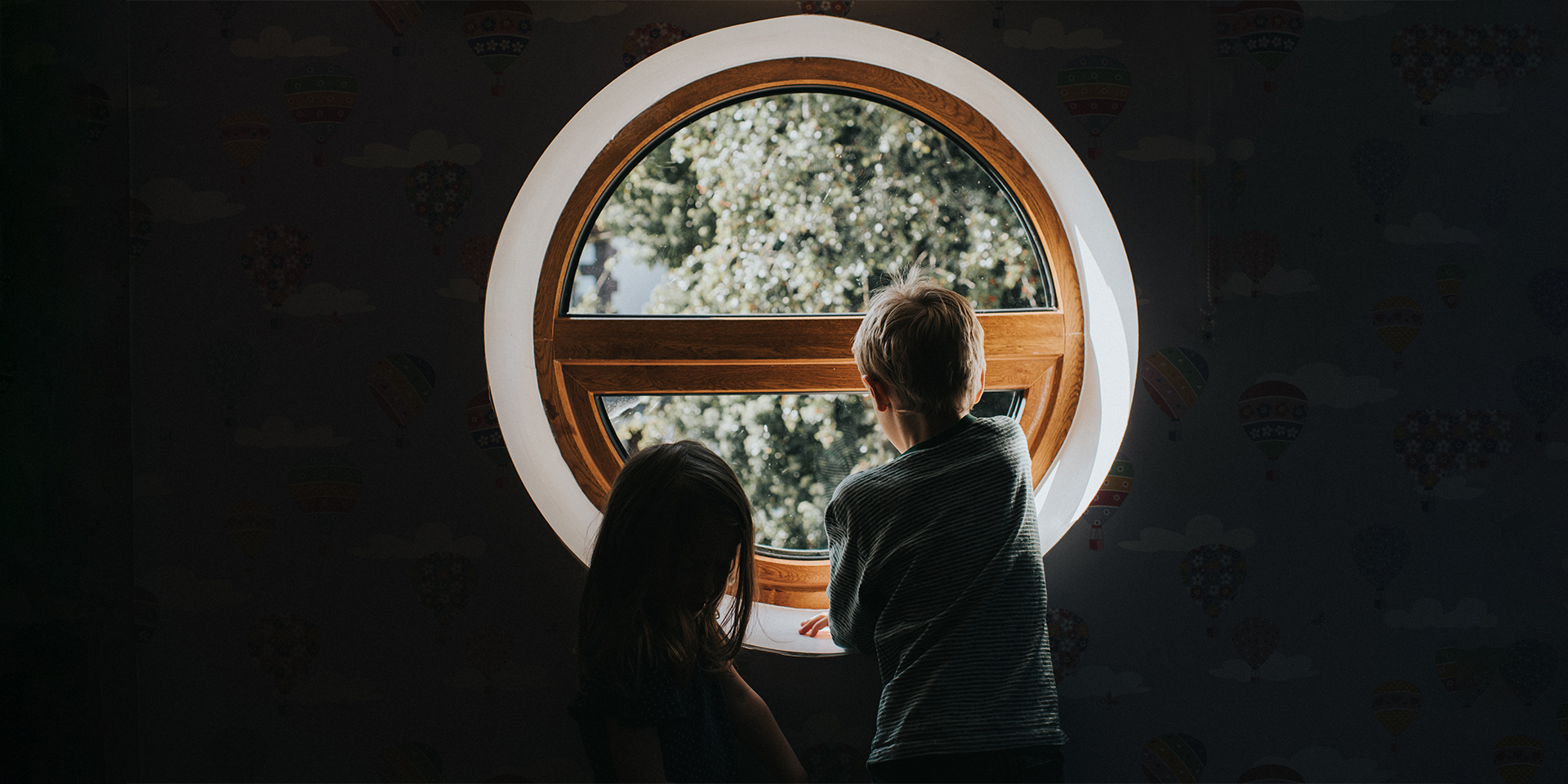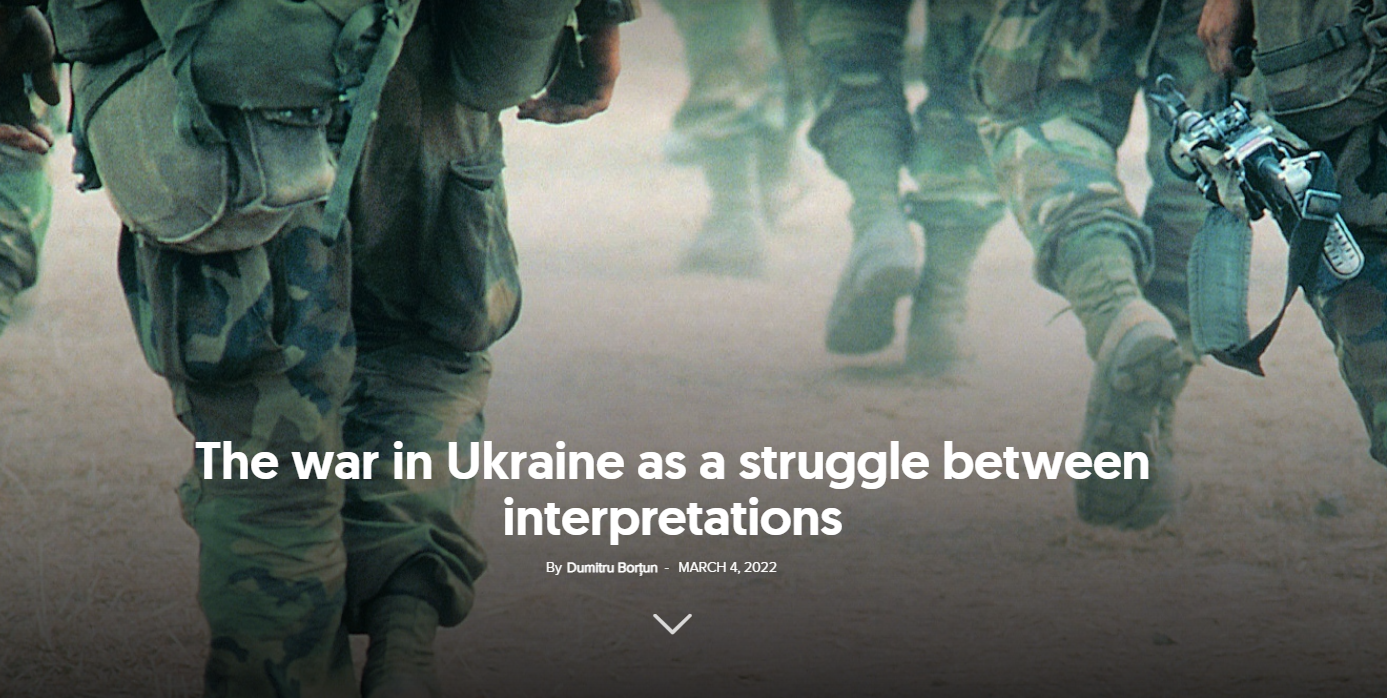When the fear of war overwhelms our thoughts, let us not forget that we are not alone, that God will end our suffering and give us a new and everlasting life.
“If there is to be peace in the world, there must be peace in the nations. If there is to be peace in the nations, there must be peace in the cities. If there is to be peace in the cities, there must be peace between neighbours. If there is to be peace between neighbours, there must be peace in the home. If there is to be peace in the home, there must be peace in the heart.” (Lao Tse, Chinese philosopher, 6th century BC)
I wonder how many of us have started keeping a war diary. Such a diary could have an awakening effect in two ways: the awakening of a state of vigilance, of lucidity, realising the solemnity of an event such as war; also, the awakening of anxiety at the thought that our generation is beginning to relive the harsh times of our grandparents, which seemed to be long gone. We have this strange “vintage” feeling after we wake up from the surprise that our century is not in a better position in terms of humanity than the bloody twentieth century.
“If there is to be peace in the home, there must be peace in the heart.” (Lao Tse, Chinese philosopher, 6th century BC)
However, in order to have space for such diaries, it is necessary for the war to be at a certain distance and for us not to be in the middle of the hurricane; Ukrainians cannot afford this luxury. We, the rest, can afford to record both for them and posterity (for future grandchildren) what we observe, what we deduce and interpret, just to have the feeling that we are not completely overwhelmed by the times; that the snowballing of history does not destabilise us, that we have a say, and a lesson to pass on to future generations.
We feel the need to rationalise what is happening to us, to record, in order to get the reassuring impression that we are in control of events, at least in our minds. A well-formulated problem is half-solved—at least, that is what we were promised at school, in maths classes.
In this attempt to rationalise the irrational and to anticipate the unpredictable, the media consults many specialists from different fields: economic, financial, and military analysts, journalists, specialists in imagology, fake news and hybrid warfare, sociologists, historians, and so forth. Surprisingly, they are required not only to speak according to their own ability but to make true prophecies—to suddenly become futurists. Of course, they cannot live up to such a desire of reducing uncertainty.
In a more chaotic way, the internet also reveals all sorts of prophetic materials reinterpreted and updated on the spot: “updates” on the old predictions about Romania and Romanians belonging to monks from another century; errata at the predictions of Baba Vanga about a messianic figure born in Romania; Nostradamus redivivus; Oriental sages who visited Romania a long time ago but only now we find out what they had prophesied about Romanians… The examples could continue.
Unfortunately, after a few hours spent in front of these streams of media content, you realise that you are a prisoner of the consumerist attitude: you wait comfortably, in front of your screens, to find out if the end of the world is approaching and perhaps be relieved that you have found out; that you have certainty, at least.
It is as if the screens and the media trusts want to assure us that they are the ones empowered and capable, through a tacit general convention, to inform the public, until its last moment of existence. And only then, with the feeling of fulfilled duty, should they also succumb, as if they were not composed of people, as mortal and confused as all of us.
Fear of war and the end
I am reminded of the meaningful reflection of an internet priest, paraphrasing the words of an old monk: “The apocalypse will come when the paths between the cells of the monks disappear.” The contemporary priest, a blogger with many followers, adapted the prediction: “The apocalypse will come when we are all offline.”
However, until then—before it’s too late and we go offline for eternity for objective reasons—what can we do to keep our hearts from being disturbed, as our Saviour encouraged us? It seems that beyond the natural disturbances and sorrows of hearing so much news of wars and other catastrophes, it is still possible to save our hearts from that devastating and annihilating disorder!
The Bible sets some milestones in future history: “When you hear of wars and rumours of wars, do not be alarmed. Such things must happen, but the end is still to come. Nation will rise against nation, and kingdom against kingdom. There will be earthquakes in various places, and famines. These are the beginning of birth pains. You must be on your guard” (Mark 13:7-9). For the past two thousand years we have been warned about two perspectives:
The first perspective is that of events that “must” happen and that have been happening in history; this means that they are seen as objective–independent of our will and conscience. They belong to the historical destructive influence of the one whom Jesus called “the ruler of this world.”
If so, and if they are destructive, unsettling, and beyond our ability to control and understand them, then how can we not be frightened? It is obvious that the malevolent plan of the wicked would worry us if we try to anticipate these events or place ourselves in their midst.
Whatever we try as a defence against this evil plan, to hijack or counter it by our human forces, would not help at all; instead, it could bring our morale down. It’s like searching for a better pair of binoculars so that you can see a devastating tsunami five minutes earlier than the rest of the people on the beach. All you would do is helplessly witness the inevitable.
The second perspective on which Bible prophecy warns us, in the very words of the Saviour, should give us hope and arouse our interest: it is the perspective on our own person, from which we observe ourselves, our self-analysis, and our reconsideration and improvement of our way of being.
The same wisdom made Lao Tse say that social peace originates in the peace of mind of each and every one of us. Therefore, the Saviour shows us what depends on us and what He expects from us. What is more, He begins the account of these disasters, planned not by Heaven, but by the old enemy of all, by asking us to not be frightened. But how can we not be frightened?
Firstly, by realising that the “tsunami” will bypass us only by His miracle made for every soul dedicated to Him, just like a landing operation from Heaven, where no one can see any chance of salvation. That is why we are encouraged to rely on Him, and not on the earthly and perishable.
Secondly, by looking beyond the immediate future and what might happen to us, at God’s assurance that we are not alone, that He will end our suffering and give us a new and everlasting life. Does this sound naive? What if this naivety is the only way of salvation?
The Saviour is the first of the “naive,” because He took away the sin of the world in a way that almost everyone thought was madness, futile torment, an absurd undertaking. However, if He is the author of so many prophecies that have been fulfilled over the millennia and also the author of the exhortations for His children, then let us be “naive” with Him!
Let us choose this naivety that reveals our innocence, that keeps the heart clean and stops it from getting troubled in a destructive way, no matter how “crazy”, “pointless” and “absurd” it may seem to cynics! Let us follow His encouragement so that we can say at the end, despite all the gloomy expectations, “This is He in Whom we have trusted!”
Corina Matei is a PhD lecturer at the Faculty of Communication Sciences and International Relations of the “Titu Maiorescu” University, Bucharest.




















